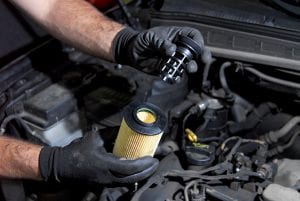Vehicle exhausts play an important role in collecting gases from the engine so that harmful substances can be removed. Therefore, an exhaust not only improves the performance of a vehicle, but is also crucial to fuel efficiency, keeping exhaust fumes away from the driver and passengers, plus controlling the noise produced by the vehicle.
However, similar to there being various filters for a vehicle, there are also several types of exhausts you can purchase.
Two of the most popular choices for a vehicle exhaust are a titanium exhaust or a stainless steel exhaust.
Depending on the driver’s goals and overall preferences, it’s important to choose between a titanium or stainless steel exhaust carefully. That’s because the selection can impact aspects such as the performance, corrosion resistance, cost, sound and the overall longevity of the exhaust.
In today’s post, the Filter Services team is here to share an overview of titanium and stainless steel exhausts, including the key differences you need to know about.
Titanium exhausts
Titanium exhausts have been described as making vehicles ‘fun’, as adding a titanium exhaust happens to be one of the most popular vehicle upgrades for car enthusiasts.
Likewise, many professional race cars use titanium exhausts. They have a higher upfront cost than stainless steel exhausts and shorter warranty periods.
When used in a race car setting, a titanium exhaust is typically replaced after a race season. This is where challenges can occur for regular vehicle use in the UK since the desire would always be for the exhaust to offer better longevity. In particular, the British climate can impact the integrity of a titanium exhaust, causing it to become brittle.
The reason why a titanium exhaust is preferred is due to being lighter than stainless steel, which again taps into any performance-related criteria, especially for racing. But even as a regular driver, this weight difference will improve the fuel efficiency of your vehicle due to the weight reduction.
For some drivers, aesthetics also play a part in why they prefer a titanium exhaust. That’s because when heated, a titanium exhaust will develop different blue and purple tones creating a unique look to the more visible areas of the exhaust.
Pros
- Titanium exhausts are lightweight, averaging 40%-50% less weight compared with a stainless steel exhaust
- Pure titanium does not rust or corrode easily
- Excellent heat tolerance
- Aesthetic appeal which can be important for car enthusiasts
Cons
- Considerably more expensive than stainless steel
- Can become brittle at low temperatures
- More difficult to fabricate
- Noisier than stainless steel which can sometimes be appealing for car enthusiasts but can present MOT issues
Stainless steel exhausts
Stainless steel exhausts are often the factory default, making stainless steel one of the most common types of exhausts to exist. Simply put, stainless steel is the obvious choice for car manufacturers because it’s high in strength, cost-effective and corrosion-resistant. Steel also benefits from being high strength, including possessing better resistance to bending and warping.
For most vehicles, stainless steel is a great all round choice. While average lifespans are 8-10 years, it’s not uncommon for a stainless steel exhaust to last much longer.
But for car enthusiasts, changing their exhaust from a default stainless steel to another material such as titanium is preferred. Specifically, if the aim is to build a vehicle that’s lightweight for racing applications or general performance, as stainless steel can’t always meet these expectations.
Pros
- Affordable
- Durable and resistant to corrosion
- Produces a more mellow sound
- Can often last a lifetime
Cons
- Stainless steel is heavier making it unsuitable for competitive performance
- Not completely resistant to corrosion (the grade of the stainless steel is an important factor here)
- Doesn’t have the same aesthetic appeal
UK considerations
When you are comparing titanium vs stainless steel exhausts, it’s important to know that the information isn’t always UK specific.
In particular, in the UK we tend to experience cold and wet winters. Stainless steel can be more forgiving than titanium, especially if you frequently drive the vehicle in all weathers.
Also, road salt can be an issue for both stainless steel and titanium. While titanium is corrosion-resistant, its supporting hardware may corrode due to road salt exposure.
Since titanium exhausts are also louder, there is a chance they may exceed legal noise levels. Therefore, you should check for compliance to ensure the vehicle passes its MOT and is deemed roadworthy.
Filter Services – Discover our automotive filters for your vehicle on our website
Beyond walking you through the differences between titanium and stainless steel exhausts, we’re also here to let you know that your vehicle also requires filters to maintain its operational performance.
At Filter Services, we stock all the leading filter brands including Donaldson, Fleetguard and Mann. Take a look around our website to place your order with us today.
Or, visit our branches in Chesterfield, Leeds or Leicester.
If you need any help with making a purchase from our website, please send us a message and our team will be with you shortly.
